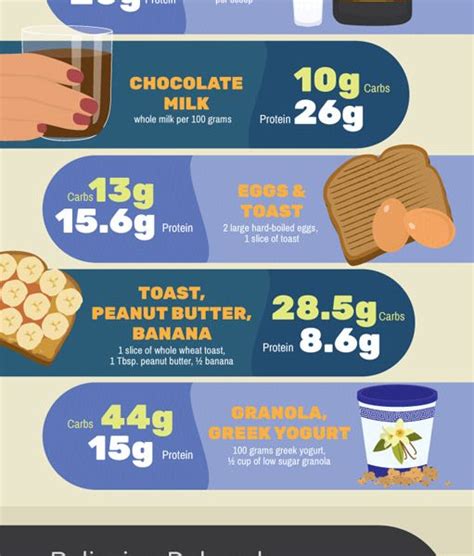Optimize post-workout recovery for faster muscle growth & peak performance?

Unlock Your Potential: The Crucial Role of Post-Workout Recovery
Many athletes and fitness enthusiasts focus intently on their training sessions, meticulously planning sets, reps, and exercises. Yet, one of the most critical phases for achieving faster muscle growth and peak performance often gets overlooked: post-workout recovery. Recovery isn’t just about resting; it’s an active, multi-faceted process that dictates your body’s ability to adapt, repair, and grow stronger for the next challenge.
Ignoring proper recovery protocols can lead to plateaued progress, increased risk of injury, chronic fatigue, and reduced athletic performance. Conversely, optimizing your recovery accelerates muscle protein synthesis, replenishes energy stores, reduces inflammation, and prepares your body to perform at its best, day after day.
The Science of Recovery: Why It Matters
During intense workouts, your muscle fibers undergo microscopic tears, and your energy reserves (glycogen) are depleted. Your body’s remarkable ability to not only repair this damage but also to adapt by building stronger, larger muscles (hypertrophy) and increasing endurance depends entirely on the recovery period. This repair and adaptation process is where the real gains are made, not just during the workout itself.

Hormonal balance, inflammatory responses, and nutrient delivery all play pivotal roles. Without adequate recovery, the body remains in a catabolic (breakdown) state, hindering progress and leading to overtraining syndrome.
Pillars of Optimal Post-Workout Recovery
1. Nutrition: Fueling Repair and Growth
What you eat after your workout is paramount. It’s the building material and energy source for muscle repair and replenishment.
- Protein Intake: Consume 20-40 grams of high-quality protein (whey, casein, eggs, chicken, fish, plant-based options) within a few hours post-exercise. This provides the amino acids necessary for muscle protein synthesis, kick-starting the repair process.
- Carbohydrate Replenishment: Replenish depleted glycogen stores by consuming complex carbohydrates (oats, rice, sweet potatoes, fruits). The timing is less critical than once believed, but ensuring adequate intake throughout the day, especially after intense or long-duration workouts, is vital for energy restoration.
- Healthy Fats & Micronutrients: Don’t forget healthy fats (avocado, nuts) for hormone production and overall health, and a variety of fruits and vegetables for vitamins, minerals, and antioxidants to combat oxidative stress.

2. Sleep: The Ultimate Anabolic State
Sleep is arguably the most underrated recovery tool. It’s during deep sleep that your body releases growth hormone (HGH), crucial for muscle repair and growth, and regulates cortisol levels (stress hormone). Aim for 7-9 hours of quality sleep per night.
- Prioritize Sleep Hygiene: Create a dark, quiet, cool environment. Avoid screens before bed.
- Consistency: Go to bed and wake up at similar times, even on weekends.

3. Hydration: More Than Just Water
Even mild dehydration can impair performance and delay recovery. Sweat loss during exercise depletes not just water but also essential electrolytes.
- Drink Up: Continue to sip water throughout the day, especially after a workout.
- Electrolyte Balance: For intense or long sessions, consider electrolyte-rich beverages or adding a pinch of sea salt to your water to replenish sodium, potassium, and magnesium.

4. Active Recovery & Mobility: Gentle Healing
Light activity post-workout or on rest days can promote blood flow, help remove metabolic waste products, and improve flexibility, reducing muscle soreness (DOMS).
- Light Cardio: A gentle walk, cycle, or swim.
- Stretching & Foam Rolling: Improve range of motion, reduce muscle tightness, and release myofascial restrictions.
5. Strategic Supplementation (Optional)
While whole foods should be the foundation, certain supplements can complement your recovery efforts.
- Creatine: Helps replenish ATP for explosive power.
- BCAAs/EAAs: Can aid in muscle protein synthesis and reduce muscle breakdown.
- Glutamine: Supports immune function and gut health, which can be stressed by intense training.
- Omega-3s: May help reduce inflammation.
![7 Habits of Highly Effective People [Summary & Takeaways]](/images/aHR0cHM6Ly90czIubW0uYmluZy5uZXQvdGg/aWQ9T0lQLm5VbWJBaU80MGl1RXgwcXIyeWd5ekFIYUU4JnBpZD0xNS4x.webp)
Always consult with a healthcare professional or registered dietitian before adding supplements to your regimen.
Beyond the Basics: Listening to Your Body
Individual recovery needs vary based on age, training intensity, stress levels, and genetics. Pay attention to your body’s signals: persistent soreness, fatigue, irritability, or decreased performance could indicate insufficient recovery. Incorporate stress management techniques like meditation or mindfulness, as mental stress can also impede physical recovery.
Conclusion
Optimizing post-workout recovery is not a luxury; it’s a fundamental component of any successful fitness journey geared towards faster muscle growth and peak performance. By prioritizing proper nutrition, adequate sleep, consistent hydration, and strategic active recovery, you empower your body to repair, adapt, and come back stronger, enabling you to unlock your full athletic potential and achieve sustained progress.







